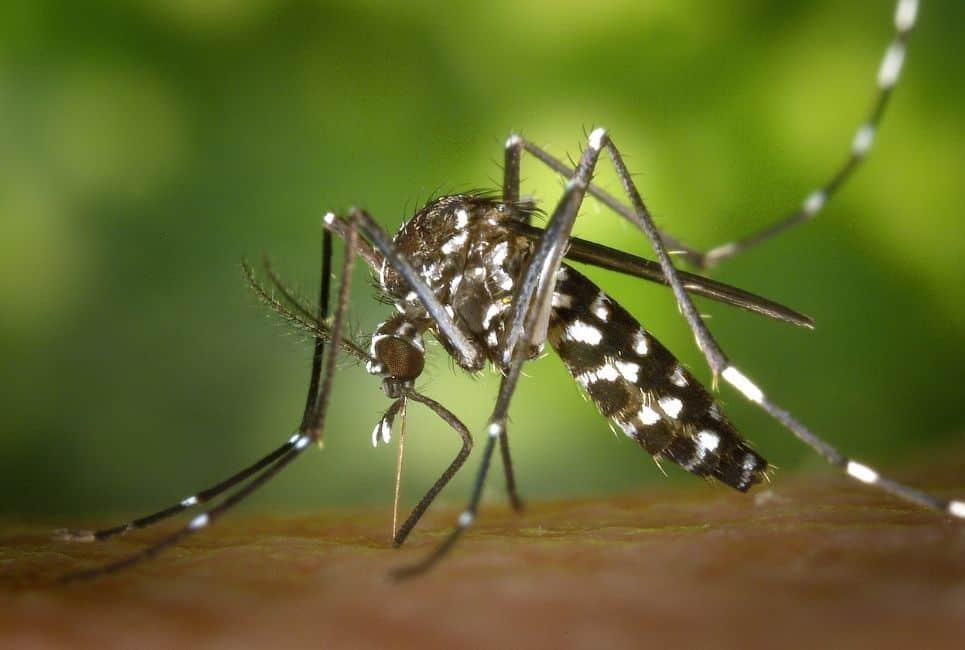There are over 3,000 mosquito species on earth and they’re found almost everywhere on the planet. Since they’re so omnipresent and won’t hesitate to bite people, they’ve built an understandably notorious reputation.
Mosquitoes also transmit the highest number of infectious diseases, some of which are known to be fatal. For this reason, they’ve been consistently studied by many public health research professionals.
Some of the infectious diseases caused by mosquitoes include malaria, elephantiasis, encephalitis, dengue, yellow fever, and hundreds of others. All of these are serious infections that can cause serious symptoms and even death if they’re left untreated. As such, it’s always vitally important to see your doctor if you start to feel ill after getting a mosquito bite.
There are numerous ways to eliminate mosquitoes, but they all don’t work the same way. We’ve rounded the most effective ways to eliminate mosquitoes and keep them away from your home. In our guide below, you’ll learn ways to do away with mosquitoes from both your yard and your home.
If your mosquito issue is already out of hand to tackle by yourself, we recommend enlisting the services of a reputable and experienced pest control service to banish these pesky bloodsuckers once and for all.
What Are Mosquitoes?
Mosquitoes are insects that bite and feed on human blood. They also feed on the blood of some animals. Although male mosquitoes eat nectar only, females need to feed on blood in order to lay productive eggs that’ll hatch.
Mosquitoes are active from the evening to the morning, but many other species are known to be active at daytime, especially before the dawn and dusk time-frames. They get their hosts through heat, scent, and exhaled carbon dioxide.
Species of Mosquitoes
Mosquitoes live all over the world, except for Antarctica. There are over 3,000 mosquito species in both the subtropics and Arctic. They’re classified into 39 various genera.
Around 174 mosquito species are found in Mexico and North America. Different mosquito species have different breeding and feeding habits. The five most common mosquito species in the U.S. are the anopheles mosquito, house mosquito, Asian tiger mosquito, southern house mosquito, and yellow fever mosquito.
Anopheles Mosquito
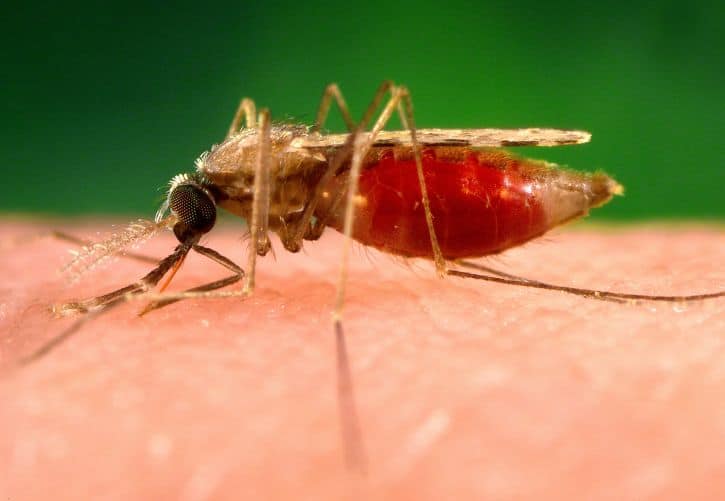
These mosquitoes are originally from Africa and are notorious for transmitting malaria. Although malaria is most prevalent in tropical locations, the anopheles mosquito has been able to move throughout the planet and has been spotted in colder climates like the Midwestern U.S. and Canada.
The anopheles mosquito is dark brown or black and its wing length may reach 2.8-4.4 mm. It’s found everywhere on the planet, except for Antarctica. It’s also most active during late night until the wee hours.
Apart from transmitting malaria, anopheles mosquitoes also cause elephantiasis in humans. As with most other mosquito species, anopheles mosquitoes lay eggs on the water’s surface, so they’re typically more prevalent during rainy seasons.
The life cycle of anopheles mosquitoes is usually around 14 days, during which they can lay 50 to 200 eggs in still water.
House Mosquito
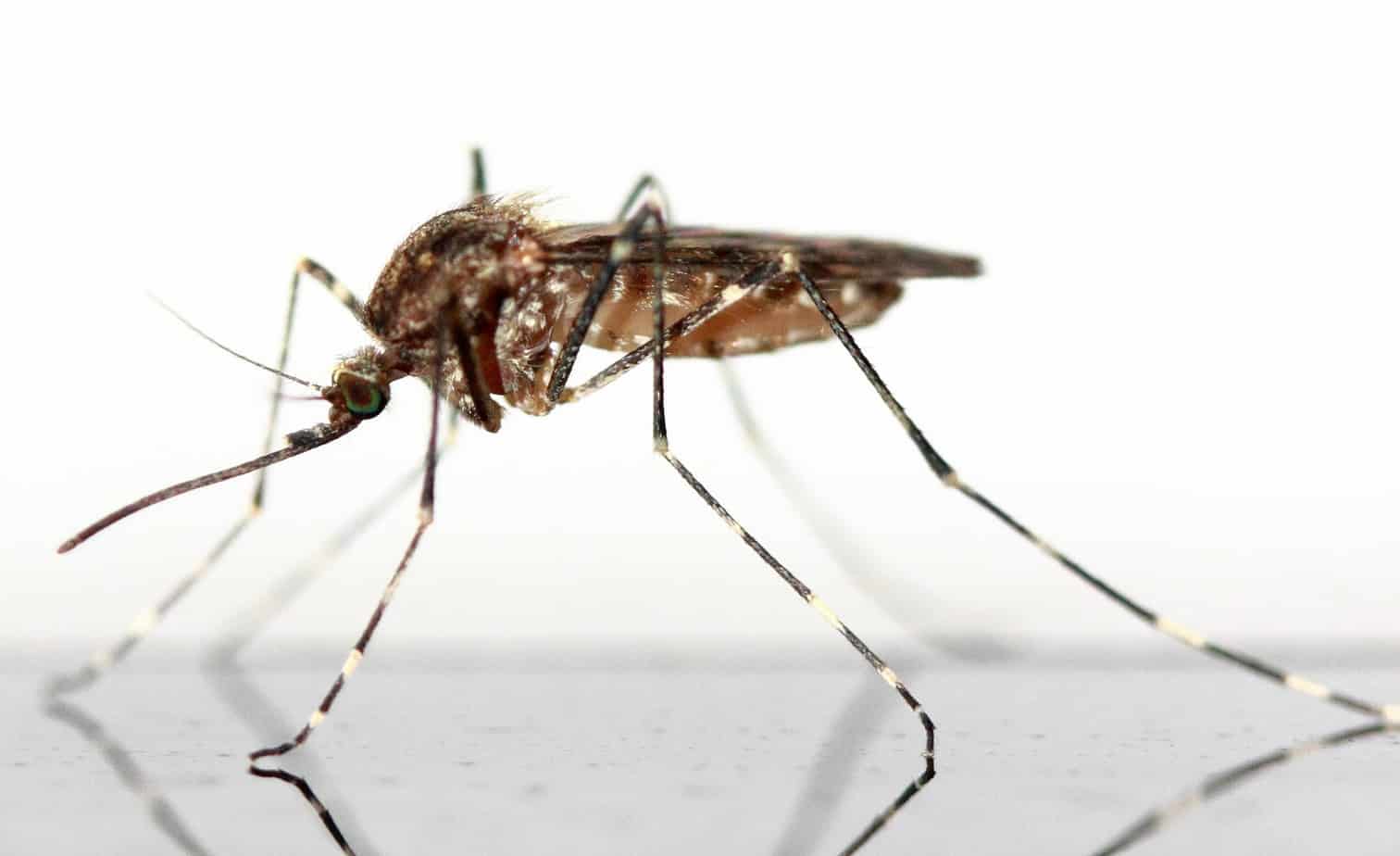
House mosquitoes are some of the most prevalent types of mosquitoes in the U.S. The species that fall into this category include Culex restuans and Culex Pipiens.
Culex Pipiens is mostly found in Northern U.S. Pale brown with white stripes, this species often lives in polluted stagnant water. Popular breeding places for this species includes storm drains, pet dishes, birdbaths, and old tires.
Female Culex Pipiens can lay about 50-400 eggs at once. These eggs usually hatch within 10-14 days, although this can take longer, based on the weather.
Culex restuans looks and behaves very much like Culex Pipiens, but it’s more commonly found in the central and eastern parts of the U.S.
Both of these house mosquito species can transmit various parasites and viruses to humans.
Asian Tiger Mosquito
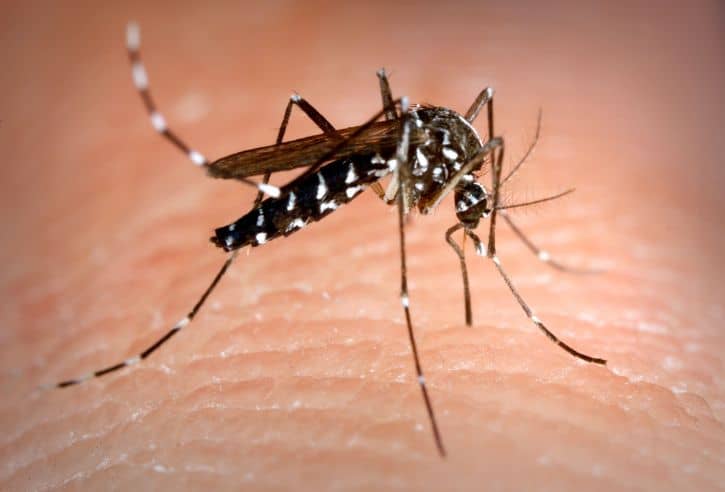
The Asian tiger mosquito has silver or bright white stripes on its thorax, abdomen, and legs. Unlike house mosquitoes, the Asian tiger female mosquito feeds during the day and can bite aggressively. Males don’t bite.
Females usually lay eggs in clear, still water. They’re attracted to containers like flowerpots and birdbaths. After a rainstorm, flooded eggs can hatch within no time under the right temperature, which makes it easier for Asian tiger mosquitoes to spread. Asian tiger mosquitoes are typically bad at flying and typically won’t travel over 800 meters away from their breeding locations.
The Asian tiger mosquito transmits over 30 viruses, only a few of which affect humans. It causes infectious diseases like dengue, Cache Valley virus, LaCrosse and St. Louis encephalitis viruses, as well as equine encephalitis.
Yellow Fever Mosquito
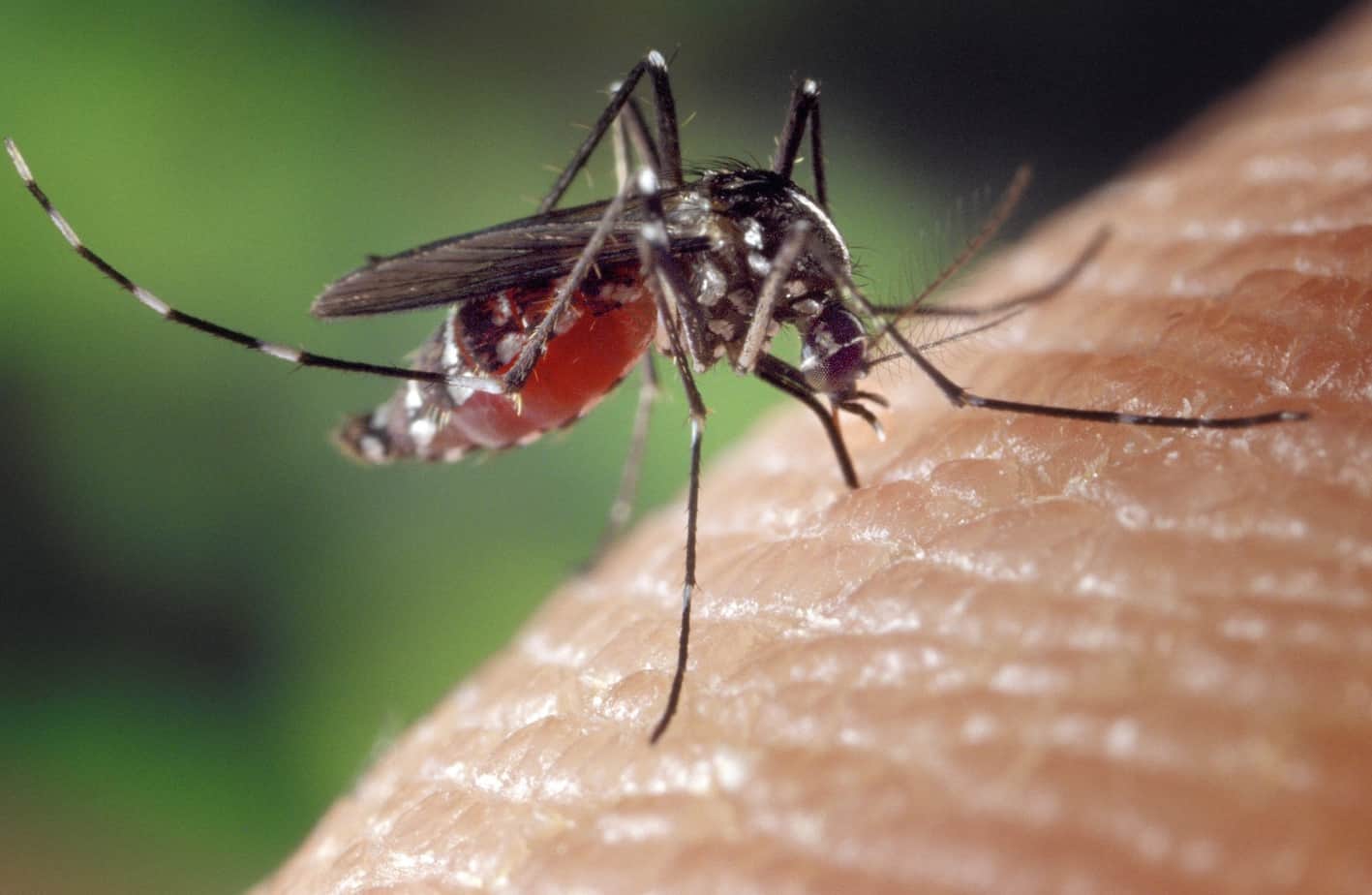
This type of mosquito has existed in the U.S. for hundreds of years. By transmitting yellow fever, yellow fever mosquitoes caused more U.S. army deaths during the American-Spanish War than the conflict itself.
Yellow fever mosquitoes are in the same Aedes genus as Asian tiger mosquitoes, so they both have the same breeding and feeding habits. But the yellow fever mosquito population in America has dropped significantly since the Asian tiger mosquito arrived, although it’s still common in some areas.
You are more likely to find the yellow fever mosquito in urban Southern Florida, as well as in coastal cities in Texas and Louisiana. You can also spot this type of mosquito along the East Coast up to New York and in southern areas of the U.S.
Southern Mosquito
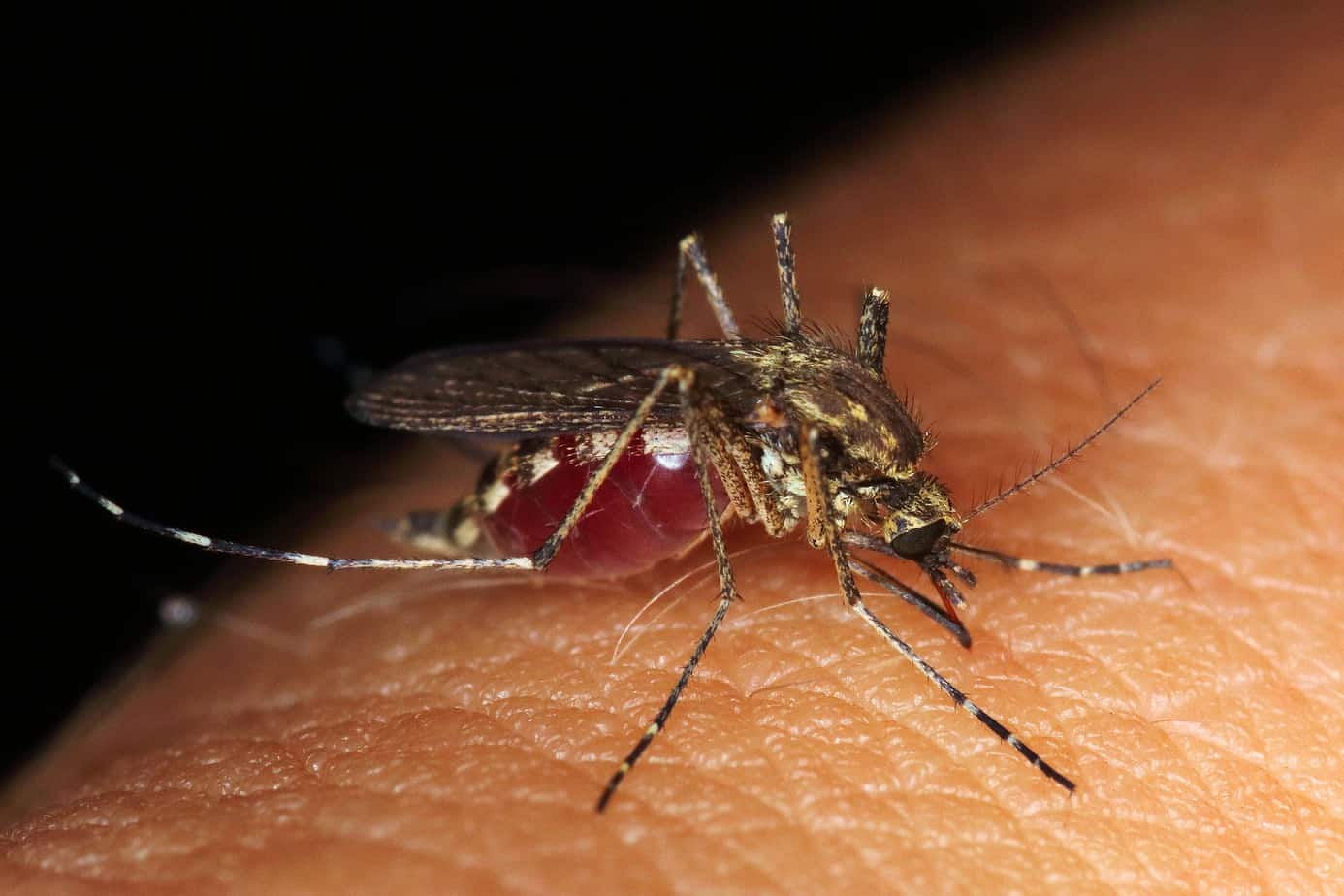
This mosquito species, also sometimes called Culex fatigans, is commonly found in the tropics and subtropics. The southern mosquito shares many behavioral and physical characteristics with the house mosquito, but it can be seen in southern regions of the U.S. and is found throughout Florida.
A nighttime feeder as well, the southern mosquito transmits the St. Louis encephalitis virus as well as the West Nile virus.
What Attracts Mosquitoes
Like most pests, mosquitoes are drawn by things that give them protection, sources of food, and moisture. They also need ideal climatic conditions like warm temperatures and rainfall in order to survive and reproduce. Since neighborhoods have these conditions during the warm season, mosquitoes often live in gardens and surrounding areas.
Knowing what draws mosquitoes to your home can help you prevent an infestation. These insects lay eggs in standing water, so you can take measures to stop the eggs from hatching and developing.
Anything that gets rid of their hatching sites can stop their development, including emptying flowerpots, unclogging gutters, picking up play toys, getting rid of old tires, and emptying or removing anything that contains water.
Since mosquitoes feed on blood, pets and humans also attract these pests. They can detect body heat and carbon dioxide, which is useful for locating humans and pets.
Signs of a Mosquito Infestation
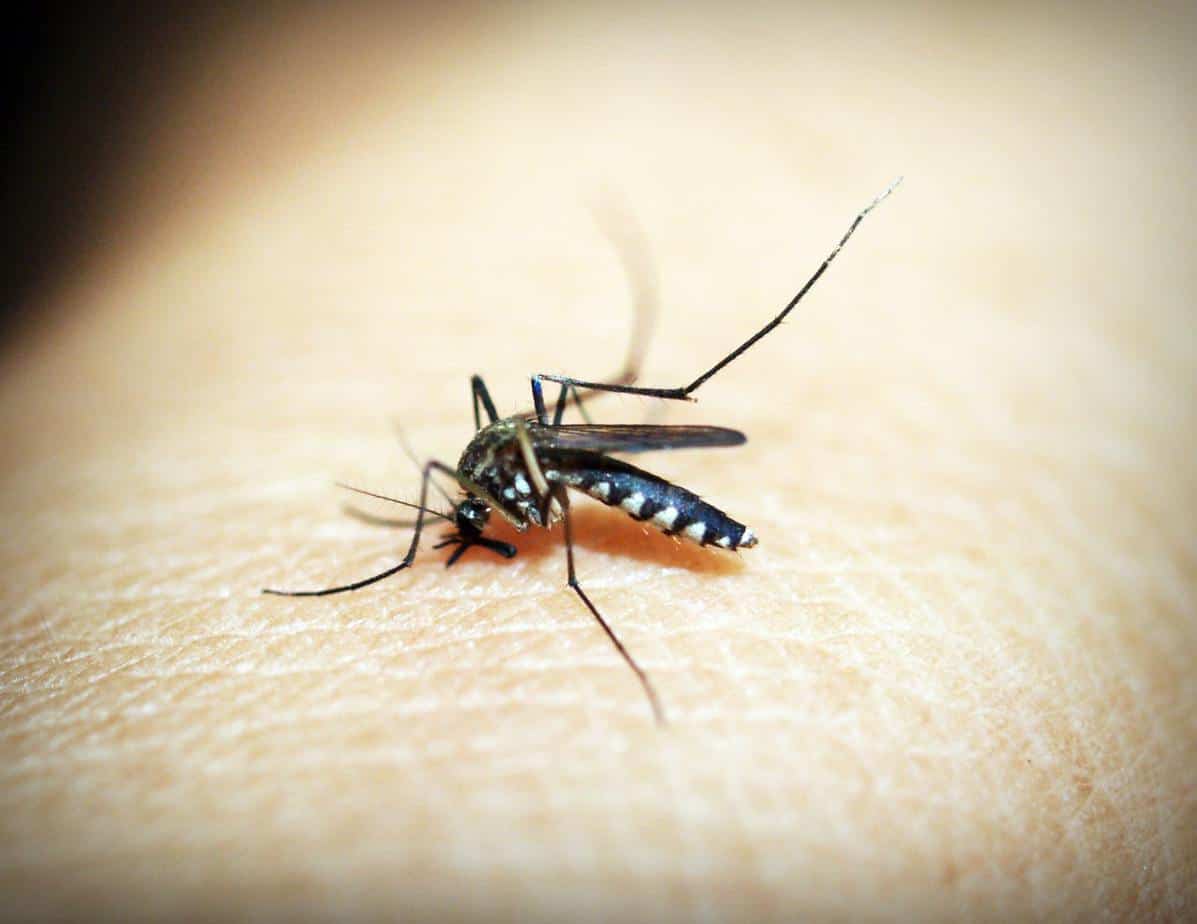
Mosquitoes are bothersome to be around as well as quite dangerous. They can potentially spread a myriad of diseases, including malaria, Zika virus, and West Nile virus to mention a few, so it’s vitally important to prevent and control their infestations in the early stages.
Here are some common signs of a mosquito infestation:
Increased Itching or Signs of Bites
Since female mosquitoes feed on human blood for nourishment, you might notice bites or experience itchiness from the bites they cause.
Standing Water
Female mosquitoes like to produce their eggs in stagnant water because it’s a perfect place for them to survive and develop. Thus, mosquitoes are drawn to sites with standing water, whether they’re natural or man-made. For instance, a mug of water in a discarded planter is enough to breed tons of mosquitoes.
You may notice the larvae and pupae of mosquitoes in the water, which is a sure sign you’ve got a mosquito infestation.
Buzzing Sounds
That buzzing sound that’s synonymous with mosquitoes is a strong sign that you may have a mosquito infestation. Mosquitoes produce a unique high-pitched buzzing noise, so you’ll know you have them once you hear the noise.
Moreover, while you might not always spot mosquitoes, if you’re constantly hearing buzzing sounds in your home, then it’s highly likely that you have an infestation.
Presence of Mosquitoes in Shaded Places
Most types of mosquitoes are mostly active at dusk, so they rest and hide in dark, shady, and cool places during the day, especially in dense foliage.
If you live in a home with plenty of shade or dark areas, these are perfect hideouts for mosquitoes that you need to check regularly and treat if necessary.
Tips for Avoiding Mosquito Bites

Mosquito bites are generally painless, but the itchiness they cause can bring some discomfort.
Sick and tired of the irritation caused by mosquitoes when you’re going about your outdoor activities? Well, here are some basic steps to take to decrease your chances of suffering mosquito bites.
Decrease exposed skin: Put on trousers, long-sleeved tops, hats, and shoes.
Avoid spots with standing water: Steer clear of areas with stagnant/still water
Avoid dark colors: Don’t put on dark clothing or use strong deodorants and perfumes as these attract mosquitoes.
Tuck pants into socks: When trekking through rough grass or bushes, tuck your trousers into socks. This way, you’ll avoid mosquitoes present in bushes or long grass.
How to Naturally Get Rid of Mosquitoes
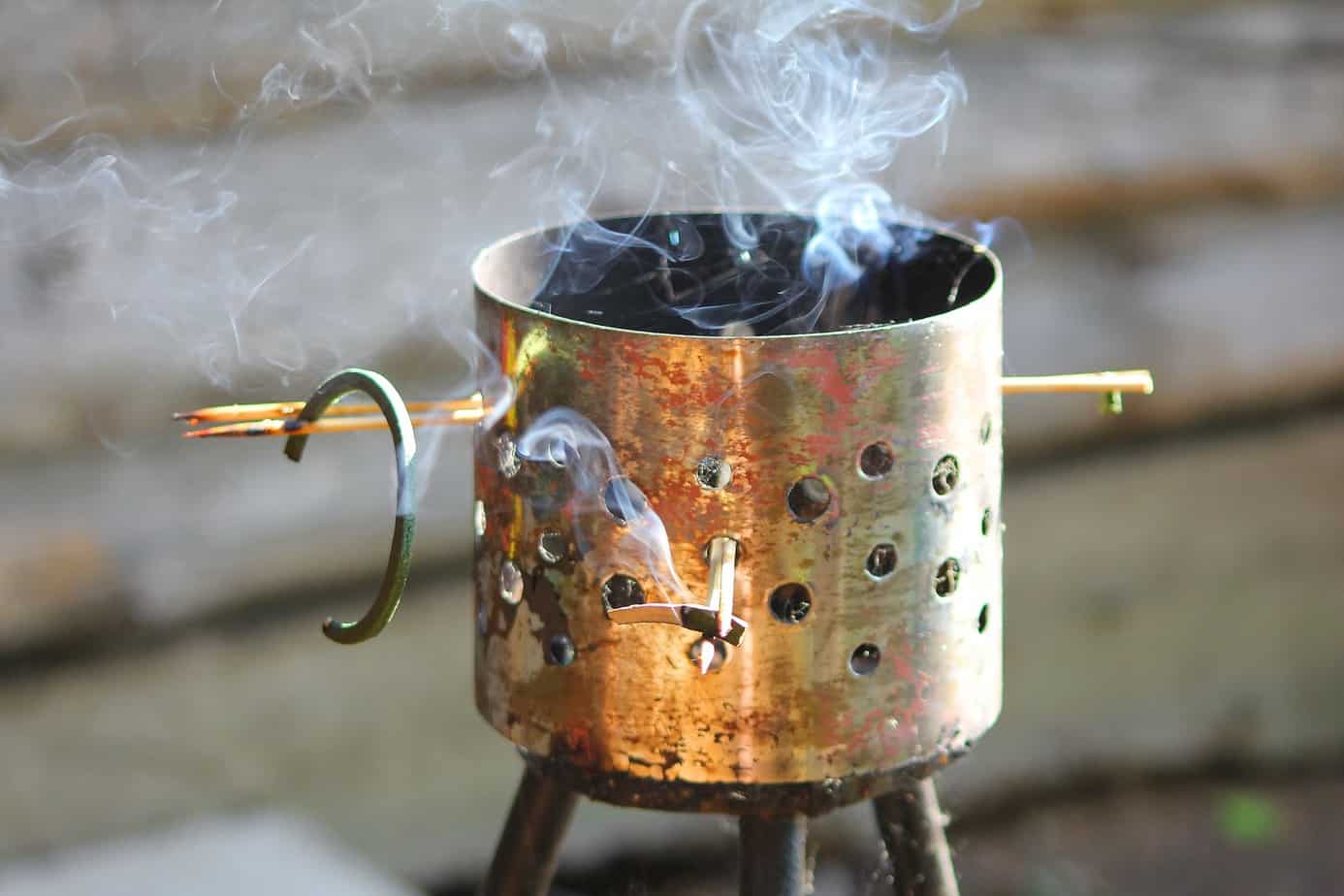
Store-bought mosquito control products can help lower your risk of suffering mosquito bites, but they’re full of chemicals that are toxic to you and the environment. So, here are the best ways to get rid of mosquitoes in your home naturally.
Garlic
Garlic contains various properties that might help keep mosquitoes at bay. To repel mosquitoes, crush a few garlic cloves and boil them in water. Spray the solution around your room, yard, basement, garage, etc.
This garlic solution will surprisingly kill mosquitoes instantly. Besides, you don’t have to worry about your home smelling of garlic as the odor will quickly go away.
Lavender Oil
The smell of lavender oil is enough to drive mosquitoes away, so make the most of it. Keep mosquitoes at bay by spraying this oil around your property and nearby areas. Better still, you can also apply some lavender oil on your body to protect yourself from mosquito bites.
Mint
Like lavender oil, mosquitoes can’t also stand the scent of mint. Simply place mint oil or mint around your home to repel mosquitoes. You can also grow mint shrubs to keep mosquitoes away once and for all!
Cloves and Sliced Lemon
A combination of cloves and sliced lemons is one good tried-and-tested method to get rid of mosquitoes in your home. Mosquitoes can’t stand the scent of any citrus fruit and cloves.
So put cloves into two lemon halves. Then place these lemon slices in your room to get rid of mosquitoes. This is a natural and safe indoor mosquito repellent.
Lemon Eucalyptus
When buying an organic mosquito repellent, choose one that has lemon eucalyptus oil. It’s very effective and provides lasting protection.
Epsom Salt
One of the weirdest home remedies for mosquito control is mixing Epsom salt with Listerine mouthwash and beer and applying the solution to your skin. As bizarre as it sounds, however, this remedy has been proven to be effective.
Mosquito Net

A must-have for people living in the tropics, a mosquito net is a very effective way to keep mosquitoes at an arm’s length. If you like to relax on your porch during the day, you can hang a mosquito net or buy a tent or pavilion equipped with a net to enjoy the outdoors without the bother of mosquitoes.
Peppermint
Want an effective but natural way to deal with mosquitoes? Look no further than peppermint.
Add a few drops of this essential oil to a cup of water to make a solution. Shake this solution well and spray it on your skin. The chemical substances in peppermint oil will not only repel mosquitoes, but also leave you smelling minty fresh!
Alcohol/Beer
As hilarious as this suggestion seems, mosquitoes also hate the smell of alcohol. Just place a glass of liquor or beer in your room and it’ll almost certainly drive all mosquitoes away. If you already have some liquor or beer in your fridge, don’t drink it all!
Sage and Rosemary
Do mosquitoes like to hover over your grill as you barbecue? Next time, try placing a few sage or rosemary leaves over the coals. The smell will keep mosquitoes at bay, leaving you to barbecue in peace!
Basil Leaves
To kill mosquito larvae, turn to basil leaves. Make sure to plant basil in your yard or at the entrances to your home. In addition, you can spray basil oil around your home or garden to drive mosquitoes away.
Tea Tree Oil
Tea tree oil contains many antibacterial properties that can be beneficial in treating various illnesses and injuries. Tea tree oil can also keep mosquitoes away from your home.
Simply add a little tea tree oil to some water to make a spray solution. Spray this solution around your home and it’ll soon be free of these annoying blood-sucking pests.
Dry Ice
Although dry ice is a slow natural way to repel mosquitoes, it works really well. Simply place dry ice in a container and it’ll eventually attract mosquitoes through carbon dioxide emissions. Then mosquitoes will get trapped in the container and die.
When working with dry ice, be sure to wear an oven mitt or gloves. Dry ice is too cold to touch for too long.
Pinion Wood
Pinion wood is commonly burnt in outdoor fireplaces. Simply start burning this wood outside your house and the odor will start getting rid of mosquitoes almost right away. They can’t stand the smell and won’t survive for long.
Coffee Grounds
You probably already have this home remedy in your kitchen cupboard! All you have to do with coffee grounds is pour them in the standing water around your home. This will deprive mosquito eggs of oxygen and they’ll die as a result.
Camphor
This is a natural remedy with a strong odor that keeps mosquitoes at bay. Simply close all your doors and light some camphor. After around 30 minutes, your home should be free of mosquitoes.
Attract the Right Birds
You can also keep the mosquitoes in your home under control by attracting the right kinds of birds. Many birds, including finches, orioles, cardinals, chickadees, and others, feed on insects and seeds.
Simply fill feeders with safflower and sunflower seeds. The right birds will inevitably stop by your home to feed and then bring down the mosquito population in the process!
Mosquito Traps
Mosquito traps are another natural way to get rid of mosquitoes without using chemicals. These traps bait mosquitoes into a closed area, where they’re either caught with a net, electrocuted on contact, or get stuck to a gum.
Different mosquito species respond differently to mosquito traps, so there’s no specific trap that works for all species. If you have different types of mosquitoes in your home and yard, use other mosquito repellents besides traps.
Mosquito Magnet
A mosquito magnet is another product that’s commonly used to control mosquitoes—it’s a trap that attracts the pests and gets rid of them.
Bug Zappers
While bug zappers will kill mosquitoes, they won’t eliminate a significant number. Bug zappers also get rid of various other insects, which may adversely affect the area nearby.
Read our full guide on how to find the best Bug Zappers available.
How to Eliminate Mosquitoes with Chemical Products
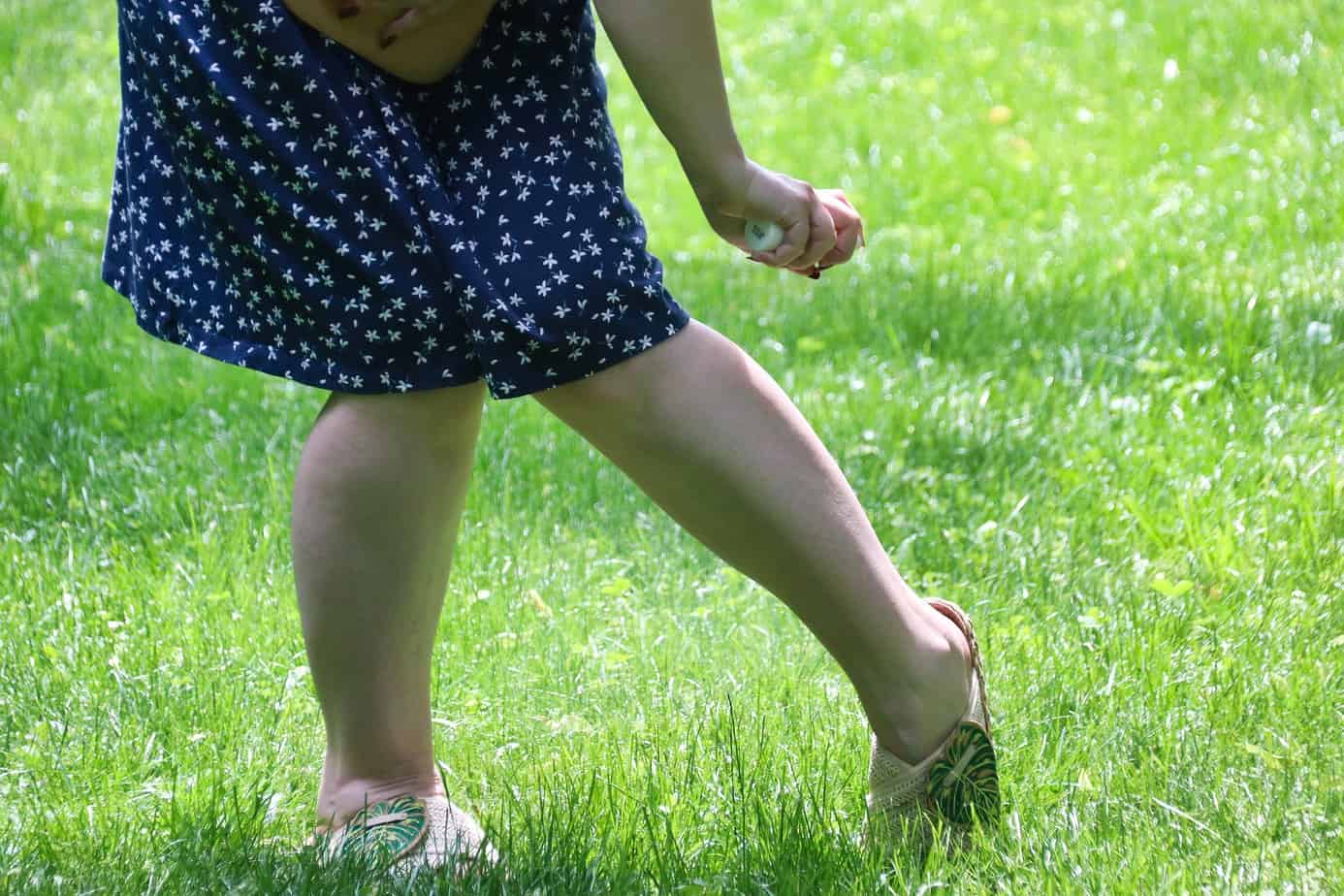
There are a variety of chemical products on the market designed to eliminate mosquitoes at home, including powder, granular, and liquid formulations. While using chemical products to kill mosquitoes, take precautions to minimize their exposure to humans, pets, and the environment.
The following information will help you learn the risks attached to with the active ingredients present in these products.
Foggers, Outdoor Misting Systems, and Aerosol Sprays
It’s not recommended to use misting systems, aerosol sprays, and foggers due to the high risk of harm during application through touching the pesticide residues left behind or inhaling the pesticides. Humans and pets can be exposed to toxic pesticides via direct contact with objects containing the residues, contact with spray drops, or inhalation of toxic pesticides lurking in the air.
Spraying aerosol pesticides outside can be harmful to non-target wildlife like honey bees, butterflies, ladybugs, and fish. Outdoor misting systems only provide short-lived relief from mosquitoes, so using them too much can cause mosquito resistance.
Read our full guide on how to properly use foggers.
Other Mosquito Control Products
- The efficiency of most other mosquito control products varies widely. Burning mosquito coils that contain allethrin or burning citronella should be done outdoors only and best works when there’s minimal air movement.
- Clip-on metofluthrin dispensers might drive mosquitoes away, but like the majority of repellents, their effectiveness depends on the user.
- Electronic repellers, ultrasonic emitters, electric grids, incense coils, aromatic plants, brewer’s yeast, vitamin B1, wristbands, and garlic that contains a scented repellent aren’t effective.
How to Keep Mosquitoes Away from Your Home
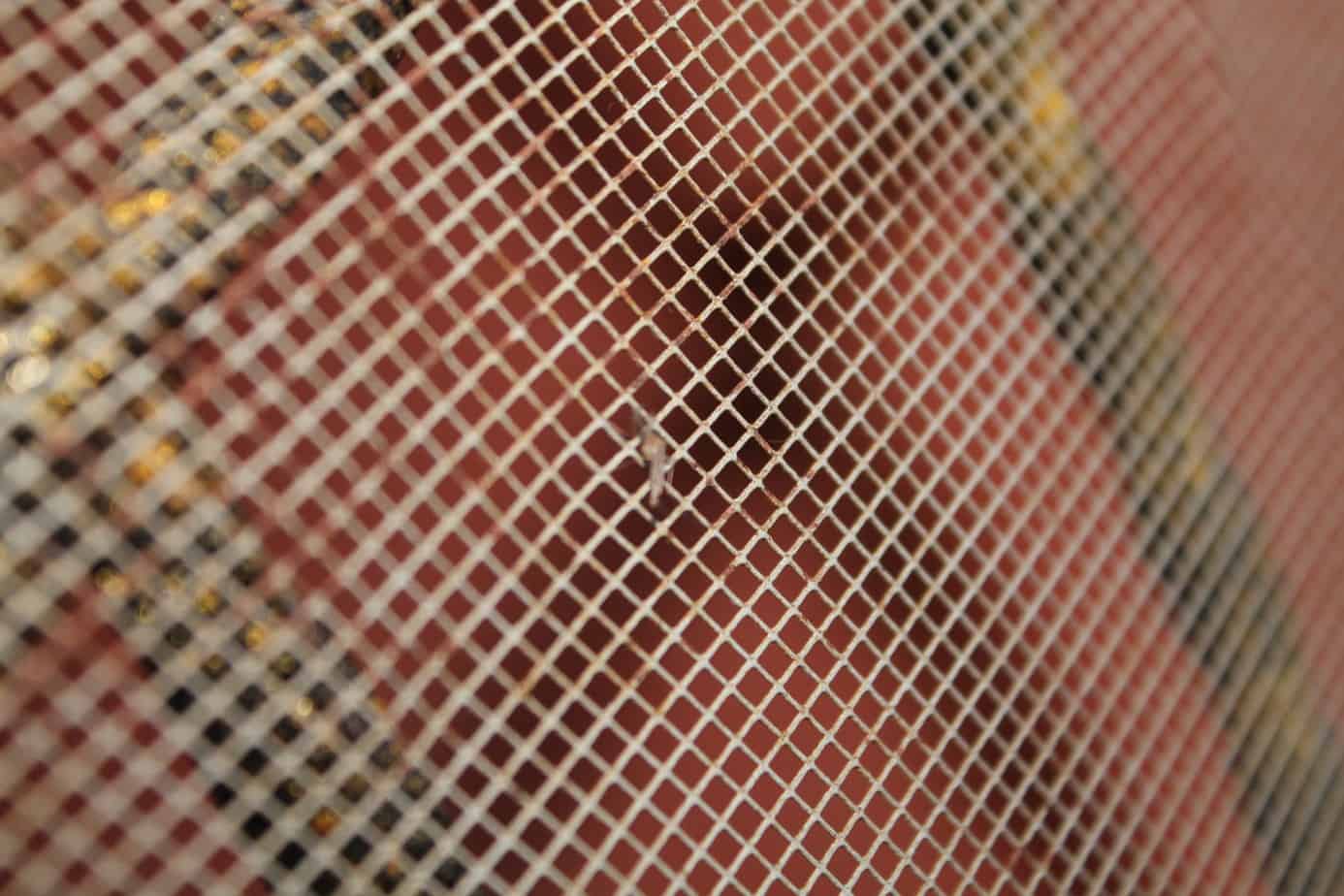
Nothing puts a damper on your evening like a swarm of bloodthirsty mosquitoes in your room or on your porch. To keep the mosquito population in your home under control, be sure to get rid of their habitat.
- Install mosquito screen/netting on all your windows. This will prevent mosquitoes from gaining access to your house.
- Clean the gutter and dispose of any dried leaves. Dried leaves can clog your roof gutters, so be sure to get rid of them once every week to prevent the accumulation of stagnant water.
- Remove standing water: Empty bottles and cans, as well as old tires can become breeding sites for Aedes mosquitoes, so get rid of them.
- Change water: Swap out water in the water containers, pot bases, and vases, and add some larvicide once or twice every month to prevent the breeding of mosquitoes.
- Cover all your water containers. This will prevent the breeding of mosquitoes.
- Keep your swimming pool clean: Keeping your home’s pool clean and chlorinated at least once a month will prevent the breeding of mosquitoes.
- Keep your drains clean: Cleaning and clearing drains around your home every week will guard against clogging.
Call in a Reputable Pest Control Company
If the mosquito infestation in your home seems to be out of hand, you may want to get in touch with a professional pest control company. This is your only option if you want vast areas of your yard and home sprayed or want to treat large areas of standing water.
A pest control professional will ensure that you don’t apply the wrong pesticides, accidentally use harmful amounts, or apply formulas that are unsafe for your household and pets. What’s more, their treatments will more than likely take all factors into consideration and ensure that your hard-earned money isn’t wasted.
Our Top 3 Mosquito Killer Picks
Here are three of the best mosquito killers out theretoday. We made the following selections based on their type and effectiveness to really neutralize mosquitoes.
NERH Bug Zapper
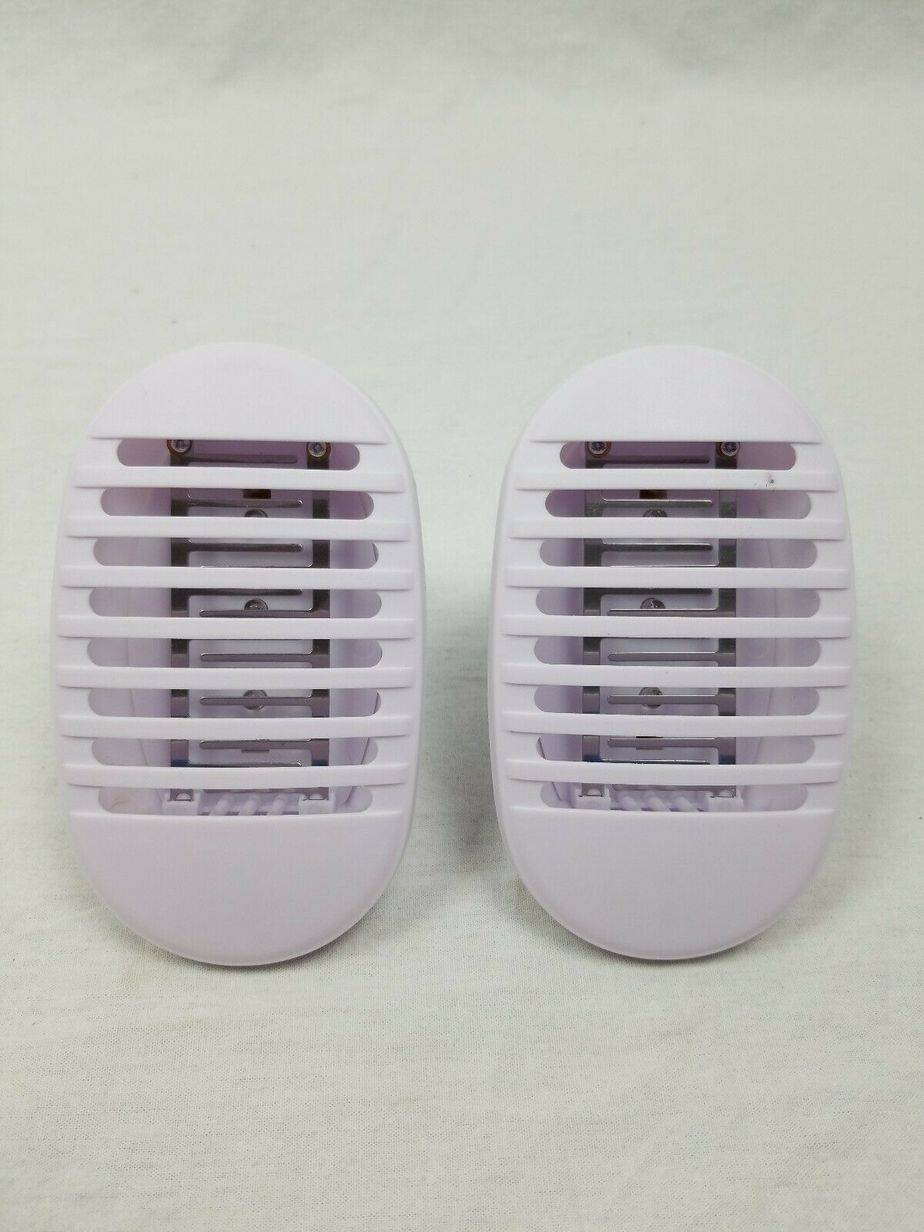
Big things are available in small packages, as they say, and the NERH Bug Zapper certainly lives up to that saying. This little plug-in bug zapper is very powerful and mosquitoes won’t take it lightly.
The bug zapper doesn’t require tools to install or set up; just plug it into a wall outlet and you’re good to go.
The zapper has three strong high-intensity UV bulbs that it uses to lure, entrap, and shock and kill mosquitoes.
This electronic bug zapper doesn’t emit toxic chemicals or smells; it’s quiet, eco-friendly (uses only 5 kWh per annum), and safe for everyone, including your pets.
Pros:
- Quiet and compact size
- Effective at killing flies and mosquitoes
- Can work anywhere provided there’s a plug-in source
Cons:
- Non-portable
- Small collection tray
- Needs a plug-in power source
Permethrin SFR Termiticide/Insecticide
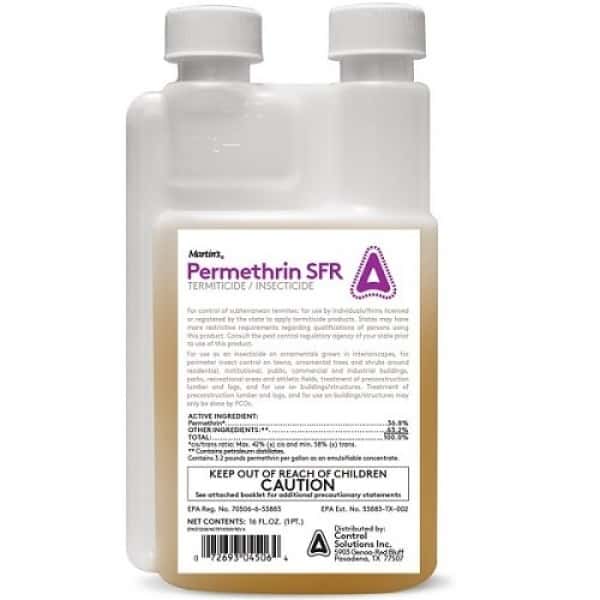
Permethrin SFR Termiticide/Insecticide is one the best mosquito killers from Control Solutions. Simply apply this product on your soil, plant, or lawn and wait around 30 days to achieve results.
You’ll like this product very much for its versatility. It’s a strong concentrate that can kill mosquitoes, fleas, ants, wasps, flies, termites, and other insects.
Pros:
- Versatile
- High permethrin concentration
- Lasts long (up to 90 days)
- Easy to use
Cons:
- Unsafe for pets
- Strong odor
Mega-Catch Pro 900 Ultra Outdoor Mosquito Trap
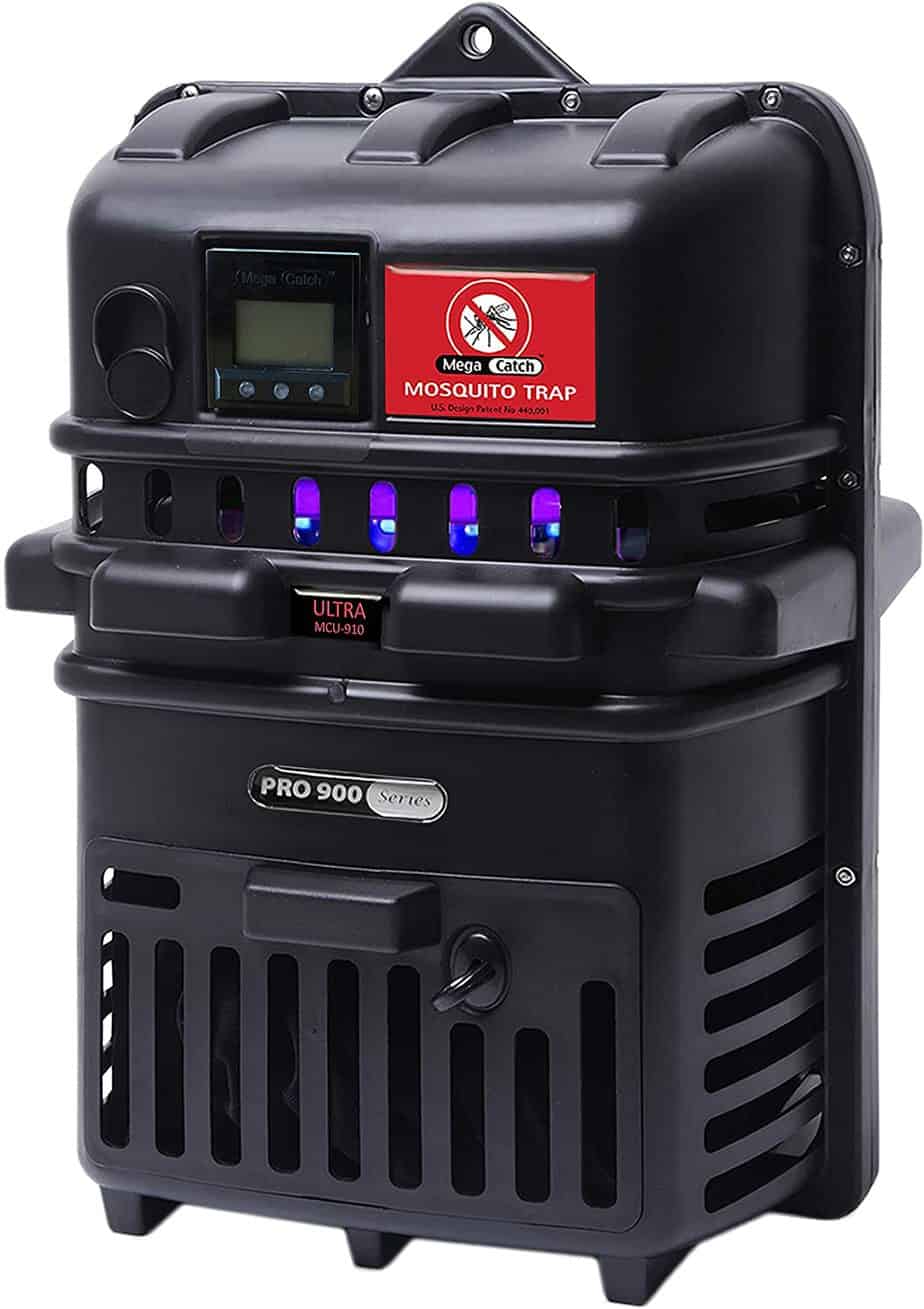
The Mega-Catch Pro 900 Ultra Outdoor Mosquito Trap is a very popular mosquito killer. The only downside to it is that it’s not affordable to everyone.
This mosquito killer machine is an amazing device because it attracts mosquitoes in various ways, making it more effective than similar traps out there. What’s more, it doesn’t use any chemicals to lure in mosquitoes.
The mosquito killer uses carbon dioxide and LED lights to draw insects. Once it detects mosquitoes nearby, a fan switches on and sucks the insects. The insects are then transferred to a container, where they’ll die naturally.
Use the Mega-Catch Pro 900 Ultra Outdoor Mosquito Trap regularly for six weeks and you’ll see the number of mosquitoes in your home significantly go down.
Pros:
- Very powerful and effective
- Safe for people and animals
- Covers 1.5 acres
- Kills all sorts of unwanted insects
Cons:
- Quite expensive
- Must be regularly cleaned
FAQs On How to Get Rid of Mosquitoes
Question: What’s the Best Way to Be Rid of Mosquitoes?
Answer: Some of the best ways to keep mosquitoes under control in your home are:
- Applying a traditional chemical repellent to keep mosquitoes away from you
- Patching up any gaps in doors and windows
- Using mosquito netting to stay bite-free
- Trapping mosquitoes with mosquito traps
- Turning on your fan
- Bathing with 100% organic non-toxic outdoor soap
- Spraying essential oils around your home and on your exposed skin
- Removing standing water
- Treating pools and ponds
- Using a bug zapper
- Burning candles
Question: What Smells Repel Mosquitoes?
Answer: Mosquitoes hate the smell of these natural scents:
- Citronella
- Cedarwood
- Clove
- Lavender
- Peppermint
- Eucalyptus
- Lemongrass
- Rosemary
- Geraniol
Question: How Do I Rid My Room of Mosquitoes?
Answer: To kill mosquitoes in your room, use an indoor insect spray or indoor insect fogger and treat their habitat. These products work instantly and you may need to reapply them.
When using insecticides, be sure to follow the directions on the label. Using insecticides only won’t get rid of mosquitoes for good, so combine them with other natural remedies.
Question: What Kills and Keeps Mosquitoes at Bay?
Answer: You can quickly get rid of mosquitoes around your patio or deck with the Ortho Bugclear Misting System. Use it alongside the Ortho AllClear Power Mister to eliminate mosquitoes instantly in any outdoor space. It also keeps mosquitoes at bay for as long as 12 hours.
Question: What’s the Most Effective Homemade Mosquito Repellent?
Answer: The most effective homemade mosquito repellents include:
- Lavender oil, lemon juice, and vanilla repellent spray
- Coconut oil and tea tree oil repellent spray
- Coconut oil and neem oil repellent spray
- Lemon eucalyptus oil repellent spray
- Rosemary oil and lemongrass oil repellent spray
The Bottom Line On How to Get Rid of Mosquitoes
If you really want to get rid of mosquitoes in your yard and house once and for all, you’ll perhaps need to try out a combination of the above mosquito control methods to get the problem under control.
Some of the best methods target either the adult or larvae. Others eliminate mosquitoes at any stage of their development, but might miss other pests.
If you stay in a wetland location and receive a significant mosquito population from outside your home, it won’t be possible to get rid of all mosquitoes in your area. But fear not! Scientists are coming up with ways to sterilize mosquitoes or make their eggs unproductive.
In the meantime, you can combine mosquito repellents with lethal chemical measures to do away with mosquitoes for good!

